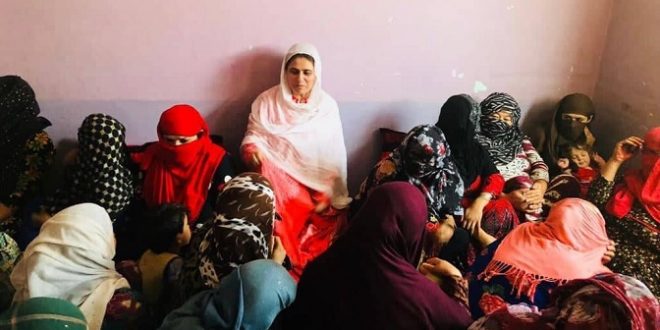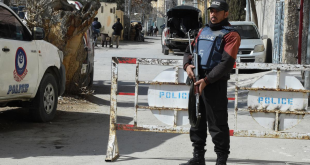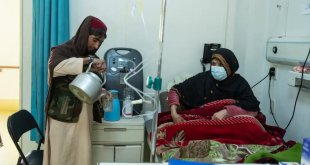By Zakia Wardak
The government of Afghanistan will meet the Taliban in Beijing, China, for peace talks. This is not the first such international summit — in the past, representatives (in their private capacity) from both sides have met in Qatar, Norway and Russia. But despite all these engagements, little progress has been made, and the same will likely be true this time around–unless something changes.
It’s time for a change—one spearheaded by Afghan women.
Women should lead the delegation to Beijing — and they need to be religious scholars, as well as health practitioners, educators, and security experts. Their presence should be a no-brainer, not just because of how affected they are by war—but also by how their resilience has empowered them even in the face of so much bloodshed.
An “unprecedented” number of civilians were killed or wounded in Afghanistan from July to September this year, according to the United Nations, The figures — 1,174 deaths and 3,139 wounded — represent a 42 percent increase from the same time last year.
Four in 10 of those killed were women and children.
But women are responding to the violence by taking ever-more active roles in leadership.
Decades of war have turned the patriarchal society of Afghanistan into a matriarchy. Take 70-year-old JanatBebe, the grandmother of 17 who is the only breadwinner for her household because insurgents killed the men. In Baghlan, Commandan Kaftar is a married women turned militia leader who is fighting against the Taliban. There are many more untold stories of women leading their households and communities in Afghanistan.
Afghan women have been hit hard by war, but they have also hit back hard—and they’re well-positioned to be on the front lines of the country’s eventual rebuild.
And if women are to play a role in rebuilding the country, why not start now and have them lead the next round of discussions with the Taliban?
In fact, there’s never been a better time for Afghan women to be engaging the Taliban.
The Taliban emerged in 1996 to restore peace and security, and to enforce its version of Sharia law. But it did not invent the subjugation of women in Afghanistan. For centuries, Afghan women have had their rights abused and their lives taken from them; the Mujahidin era during the anti-Soviet insurgency in the 1980s was even worse than the Taliban’s.
Now there’s an opportunity to change all of this. Rather than blaming one regime’s approach, we need to focus on moving forward.
The Taliban has remained officially vague about what kind of government it favors. In June 2018, however, The New York Times obtained a rare copy of a draft constitution that hinted at women’s education, but vaguely, with little details which is why sending women — from the fields of security, education, health, sciences, and religious studies rather than only from politics –to these talks would send a strong message about the ways women are now leading in Afghanistan. And sending Islamic scholars in particular would give the Taliban the religious debate they seek over the role of women in society.
After nearly two decades of failed policies and false starts toward peace, there’s never been a better time to think outside the box—and to let Afghan women lead the next chapter of reconciliation from the front.
Zakia Wardak is a business woman and advocate for gender inclusion in Afghanistan.
 Afghanistan Times
Afghanistan Times




